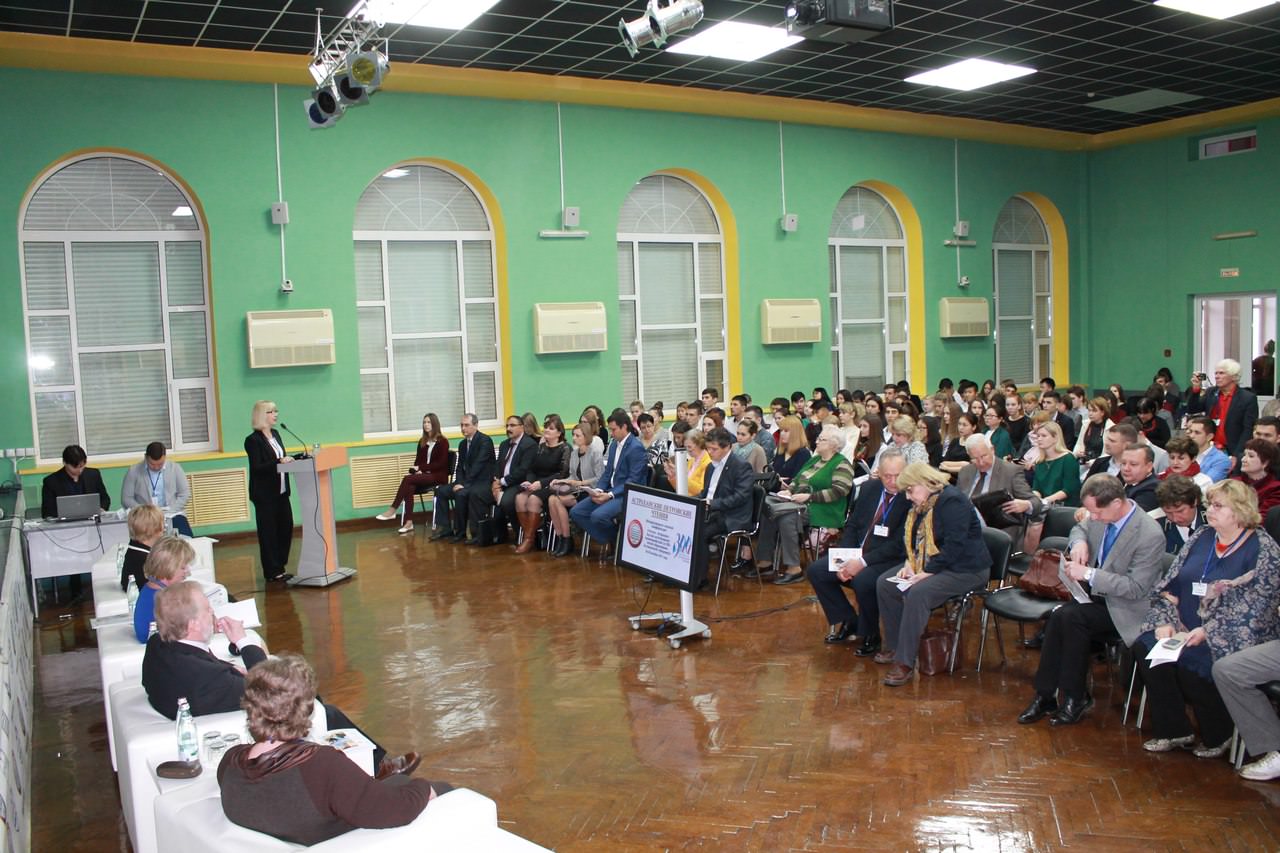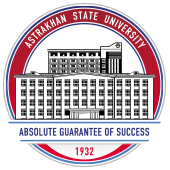Peter’s Readings Held at ASU
 26.10.2017
26.10.2017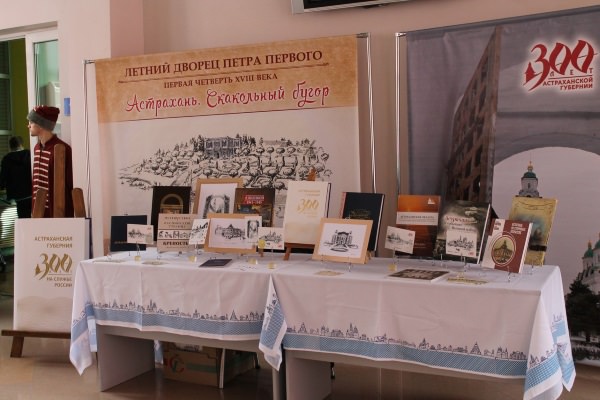
The Peter’s Readings in Astrakhan “Russia – Astrakhan – Orient: Integral Interaction” are currently held at Astrakhan State University.
This international scientific conference is dedicated to the 300th anniversary of Astrakhan Region that is celebrated this year. The event has united scholars from Russia, Kazakhstan, Azerbaijan, Hungary, and the United States.
Prof. Anna Fedotova, Vice Rector of ASU for Research Activities, opened the Plenary Session by indicating the main points for the Forum to discuss. She remarked that thanks to this Conference, we could trace the overall history of Astrakhan Region – from its very origin up to nowadays.
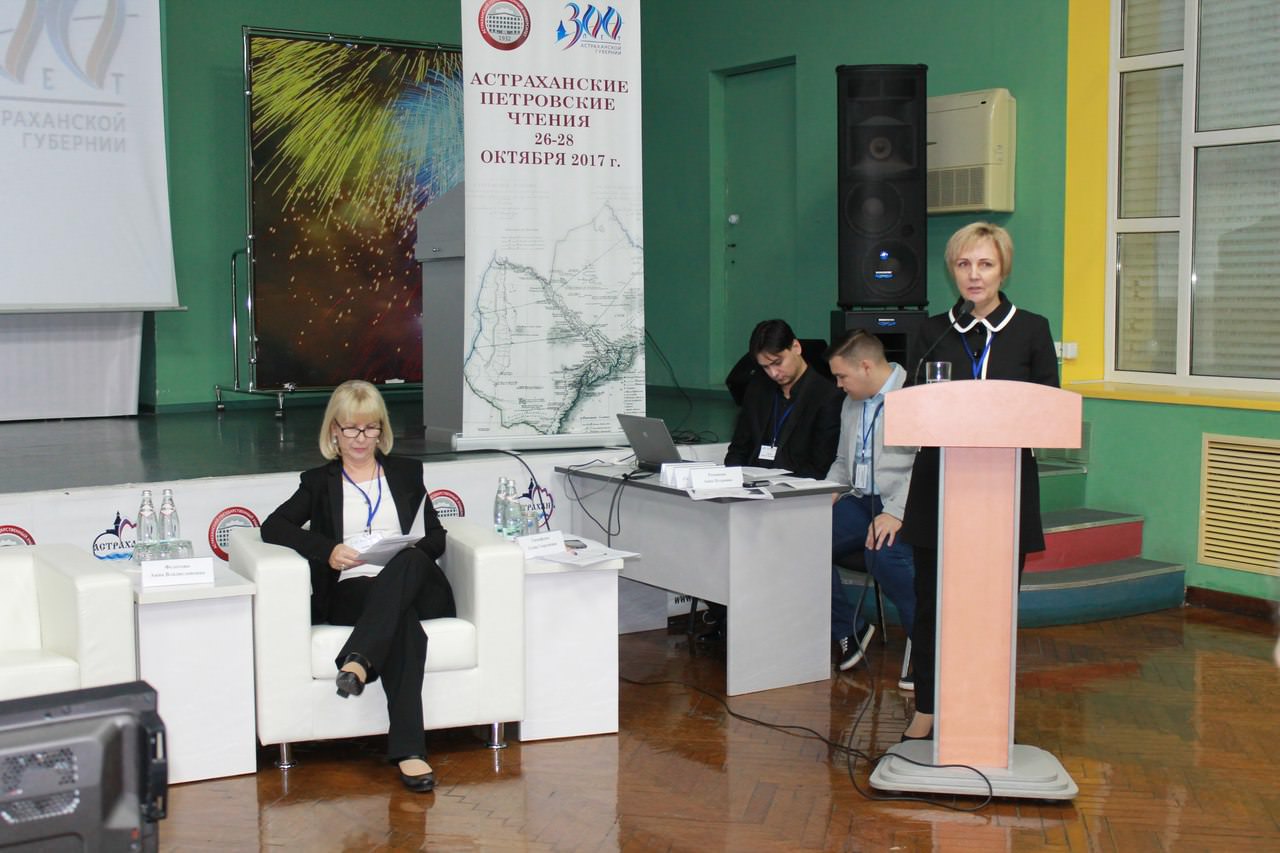
The goals and tasks of Peter’s Readings were also indicated by Ms. Galina Zoteeva, Minister of Culture & Tourism of Astrakhan Region. “This Forum aims to share knowledge and expertise in the field of Humanities, establish friendly relations between scientific communities of various countries and cities”, the Minister pointed out. She also remarked that a peculiar feature of Astrakhan Region is a high level of tolerance, while its ethnic diversity is actually its brand. One should also note that the development of our Region is based mostly on legacy of Peter the Great.
Ms. Irina Rodnenko, First Vice Chairperson of the Parliament of Astrakhan Region, continued the official part of the event. She pointed out that Peter’s Readings are another good tradition to develop a more responsible and delicate attitude towards the history of Russia in general and Astrakhan Region in particular.
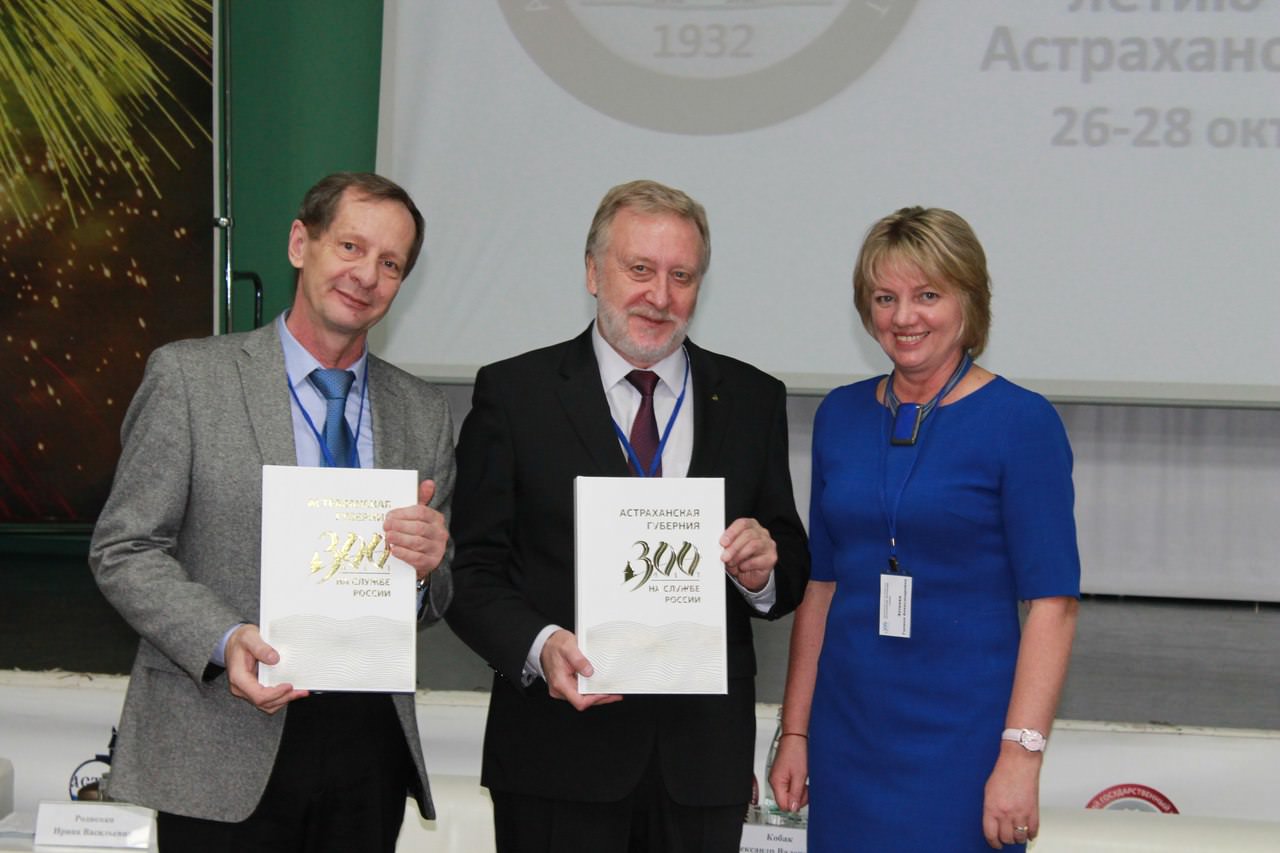
Mr. Alexander Kobak, Director of the Peter the Great Institute and CEO of the Dmitry Likhachov Fund, thanked the Organizing Committee for inviting him to the Conference and noted that two remarkable events are being celebrated at the same time as the Peter’s Readings: the 300th anniversary of Astrakhan Region and the 300th anniversary of the Peter the Great’s visit to Europe.
The Conference agenda included eight sessions: “Peter the Great’s Cities: Historical Self-Identification, Integration, and Migration”; “Historic & Cultural Heritage of Lower Volga Region: Studying, Preserving, and Translating”; “Astrakhan – Caucasus: Geopolitical Issues of Russian South within Context of History”; “South Russian Frontier & Border Area”; “Caspian Littoral Region: Interethnic Diversity & Interaction”; “From Volga to Caspian Sea: Environmental Changes & Technogenesis”; “Strategic Trends of Economic Development of Russia South”; “Cossacks of Astrakhan: Valorous Service to Fatherland”.
The event agenda also included the Youth Historical Forum “300 Years of Astrakhan Region: Looking into Future”.
